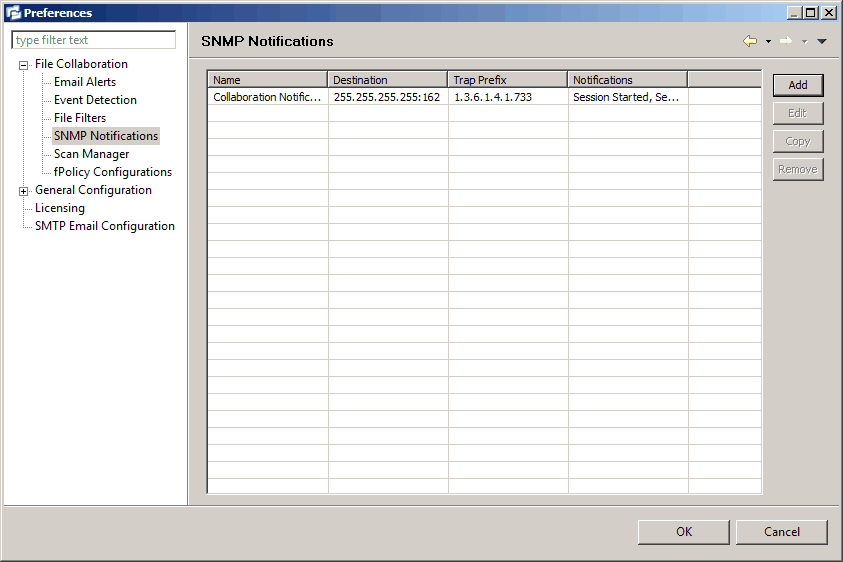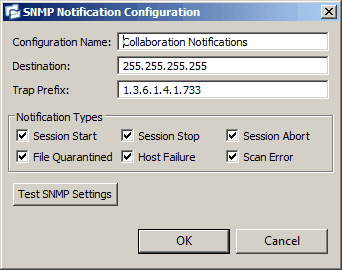Overview
The PeerLink Hub has basic support for SNMP messaging. SNMP notifications are set through the concept of "SNMP Notification Configurations" where a single configuration (consisting of a unique name, a selection of notification types along with a trap prefix and destination) can be applied to multiple file collaboration jobs without requiring repeat entry for each job. When an SNMP Notification configuration is applied to a job, a SNMP trap will be sent to the destination IP address or hostname anytime a selected notification type is triggered by the job
To mange these configurations, navigate to the Window menu of the PeerLink Hub, select Preferences, then navigate to and select SNMP Notifications from the tree node on the left. The following screen represents the list of defined SNMP Notification configurations, along with buttons to add new ones and edit, copy and remove existing ones.

Upon adding or editing a SNMP Notification configuration, the following dialog is displayed:

Within this dialog, you can select specific triggers on which an SNMP trap will be generated, configure the destination host name, IP address, or broadcast address, set the prefix that is attached to every message (helping to identify messages coming from specific instances of the PeerLink Hub or jobs across a network), and test the aforementioned settings. Notification types are listed below.
Notification Types
Session Start |
Enables sending a notification when a session is started. |
Session Stop |
Enables sending a notification when a session is stopped. |
Session Abort |
Enables sending a notification when a session is aborted because of lack of quorum due to a failed host(s). |
File Quarantined |
Enables sending a notification when a file is marked as quarantined because a file conflict was not able to be resolved. |
Host Timeout |
Enables sending a notification when a host timeout occurs and the host is taken out of session. |
Scan Error |
Enables sending a notification when an error occurs during the initial synchronization process. |